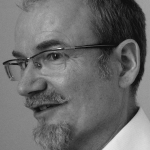Personal genomics, the quantified self movement, smart watches, clever contact lenses and intelligent pills: each second we accumulate more and more data and struggle to extract meaning from it. What ways are there to cope with the data deluge, how can visualization and storytelling help? What can we do to find sustainable ways to manage our personal and institutional health data, what businesses practices, what policies should we foster - and which should we fight?
- Activities
- Lift:TransformLift gives organizations an edge by designing and implementing open innovation strategies through organizational programs.
- Lift:LabSince 2016, Lift has been running a new, experimental format designed to help project teams, re-imagine and accelerate their innovations, and to connect with the bigger picture of what is happening in society.
- Lift:CommunityLift runs initiatives around the world to engage communities to co-create, prototype and find solutions for a better future.
- Lift:EventsSince 2006, Lift has been organizing events using a unique approach, combining collaborative intelligence and open innovation, inspiring change makers to solve business and social challenges.
- About
- Insights


















